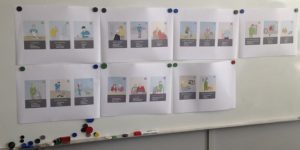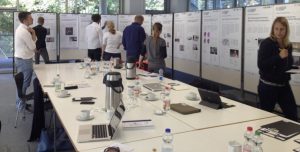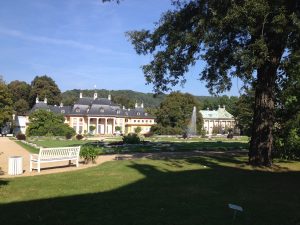Participants of the MinD project were hosted by the Alexianer Krankenhaus Belin and the Technische Universitat Dresden for the two-week visit of the 3rd secondment between 29.08.2016 and 12.09.2016 in Germany. The first week was devoted to familiarising visiting colleagues with the dementia-care environment of the hospital, as well as to the preparation for the data collection stage. Consortium members finalised visual triggers in a form of specially designed CARDS to support the data collection in the focus groups and individual interviews with people with dementia. A draft of the complimentary visual diary in the form of creative exercises for patients with early stage dementia was reviewed and improved. Data analysis and coding schemes for both textual and visual data were discussed and developed from the focus groups and interviews.

A second part of the secondment, in Dresden, focused on adding the design component to the data collection with presentations about design methods and strategies. Besides several presentations about design methods by colleagues of the project team, this included a short presentation of design ideas for people with dementia by students of TU Dresden. Further, the team attended lecture by Prof. Dr Gesine Marquart from the Center for Demography and Diversity (CDD) at TU Dresden, on designing hospital interiors for elderly patients with orientation problems.

The most important part of this secondment was a first focus group data collection. The secondment was also very important for examining and debating the methodology for the data analysis stage, including visual analysis techniques, thematic analysis as well as discourse analysis methods. The secondment was rounded off by a visit to the Museum of Decorative Arts in Pillnitz.

